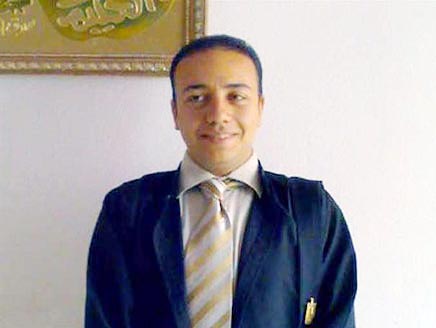CAIRO: Good news for people in a hurry. This evening, sometime between 6-9 p.m, you ll get where you want to go in no time because of the unusual emptiness of the city s perpetually bustling streets. Ahli and Zamalek will be at it again and only those coming from Mars will not be watching the derby, either live or at home.
For the record, Ahli and Zamalek have met 95 times, Ahli winning 32 of the encounters, Zamalek 24. There have been 39 ties. Zamalek is in first place in the league with 35 points, one ahead of Ahli, which has three games in hand.
But this is not just about Egypt s best two teams. The rivalry is the national divide. Every Egyptian, and quite a few not from this country, has a preference, from supporters who would kill to lukewarm observers from afar.
The rivalry is rooted in history. Ahli and Zamalek games have been Egypt s and one of the Arab worlds most anticipated since the league championship kicked off in 1948. It was in October that year that the two clashed for the first time, with Zamalek going ahead through Said Rostom and Abdel-Karim Saqr before Ahli pulled two goals back through Ahmed Mekawi and Saad Osman. They ve been at each other s throats since.
Player magician Hussein Hegazi and a diplomatic row over Palestine began what would become fascinating match-ups. Hegazi, a member of the Egyptian team that took fourth place in the 1928 Olympics in Rome, was a genuine football sensation. He started his career with Ahli (then known as the High School Students Club) and was the talk of the town with his amazing abilities in the game that was introduced to Egyptians by British occupiers the previous century.
The genius of Hegazi, who was Egypt s first soccer export, joining the English Dulwich Hamlet football club in 1911, was one reason for Ahli s immense number of supporters. When he moved to Zamalek (then Mukhtalat), in the 1920s, many of Hegazi s fans switched allegiance, backing Zamalek instead. It was this switch that is alleged to have been the catalyst in the derby, each team vowing to win the country s best players onto its side.
It was not until 1944 that the roots of the rivalry had taken hold. That year, Ahli traveled to Palestine for a friendly match despite opposition from Egyptian officials who suspended the team s players upon their return to Cairo. The suspension lasted until the final match of the cup, which pitted Ahli against Zamalek. Ahli s rust showed and they were drubbed 6-0, the most lopsided score in the derby.
By 1966, the encounters had become so touchy that foreign referees with unbiased whistles were resorted to for the first time in league history.
But the rivalry not only sustained but also has intensified. Ahli fans burnt the place down in 1971 when a controversial penalty was awarded Zamalek. The game was abandoned and so too was the rest of the season following riots.
Then there was the five-minute game in 1998 when Zamalek protested a red card and abruptly walked off the field, calling it a day.
The derby has taken a social connotation of its own, with many stories ranging from quasi-comical to tragic. One father refused to give his beloved away to an Ahli suitor because the family tree was wrapped in the exclusively Zamalek red and white colors (apparently, the father is also a big fan of George Bush s you re-either-with-us-or-against-us motto).
Some domestic disputes ended in worse fashion. A few years back, a man, distraught that his Zamalek had lost to Ahli, killed his wife after she brought him a watermelon as an after-game treat. When he cut the fruit in two and found it was red just what did he expect? He thought his wife was teasing him so he extracted the knife from the watermelon and plunged it into her as well. Such are the family feuds on derby day.
An Egyptian feature film hit the jackpot last summer by making use of the fierce competition between Ahli and Zamalek. Sayed El Atefy (Romantic Sayed) topped the box office in Egypt after attracting thousands of Ahli football fans because it made fun of archrivals Zamalek. Star Abla Kamel appears as a taxi driver and a big Ahli fan who sings sneering chants which ridicule the heavy defeats Zamalek have received from Ahli in recent years.
But that s entertainment. Both clubs have created a Cold War atmosphere; a détente has never been signed. Yet we understand Ahli club has suggested that the supporters of both teams should today mingle as one in Cairo Stadium – instead of being separated as is normally done – so that the atmosphere is akin to the warm ambience that glowed in the Africa Cup of Nations. But who s kidding whom? In the African cup we were all united, all rooting for the same team. But today, patriotism stays home. The African cup fused the country; Ahli and Zamalek pull the nation apart. Let s leave naiveté in the dressing room. Ahli and Zamalek is a time to remember differences, not similarities.
There is good and evil in every football game. Ahli and Zamalek is no exception. We will cheer and we will jeer.
